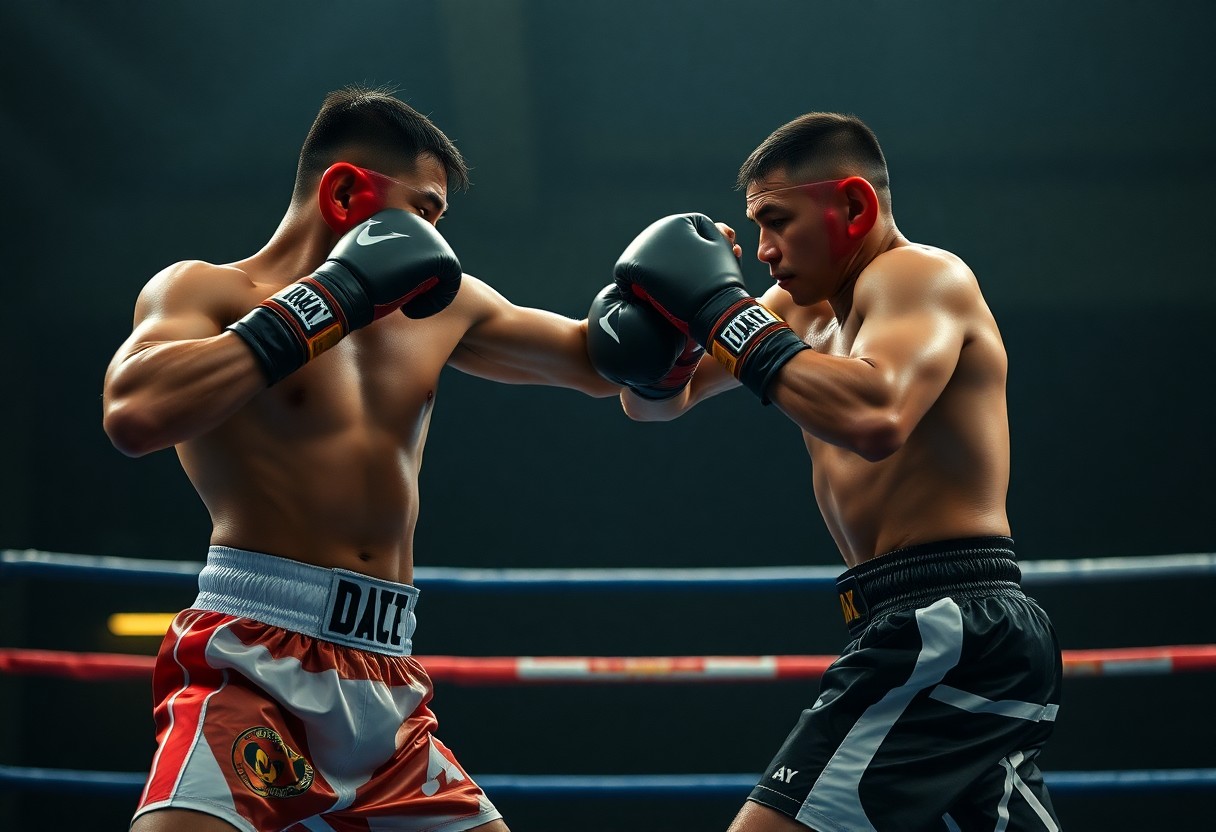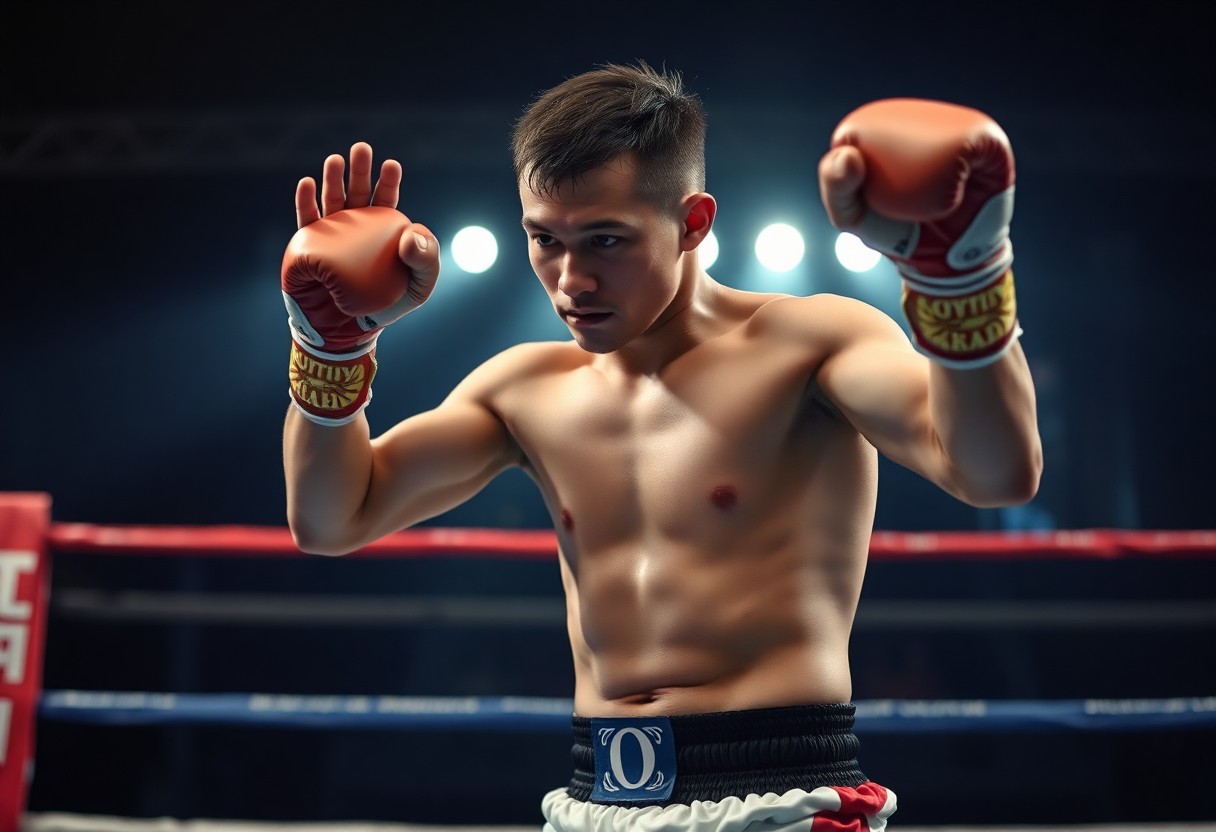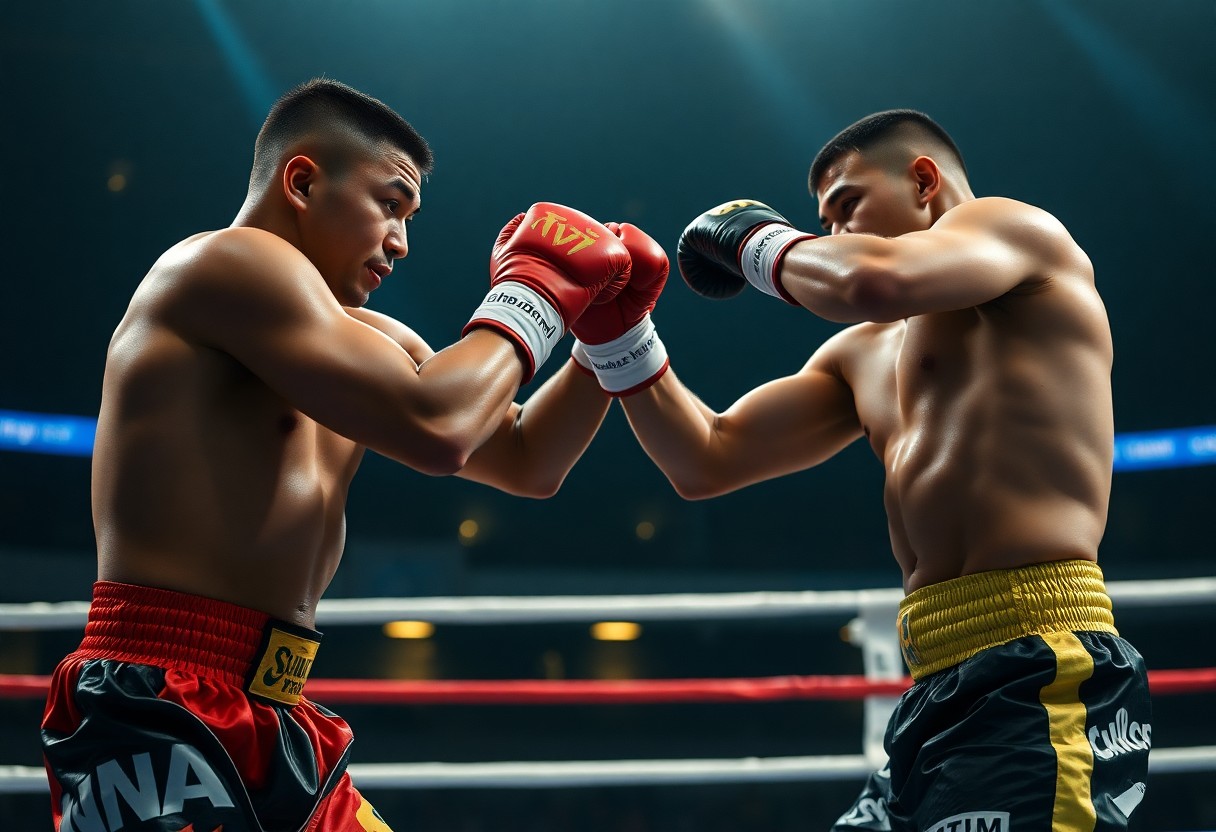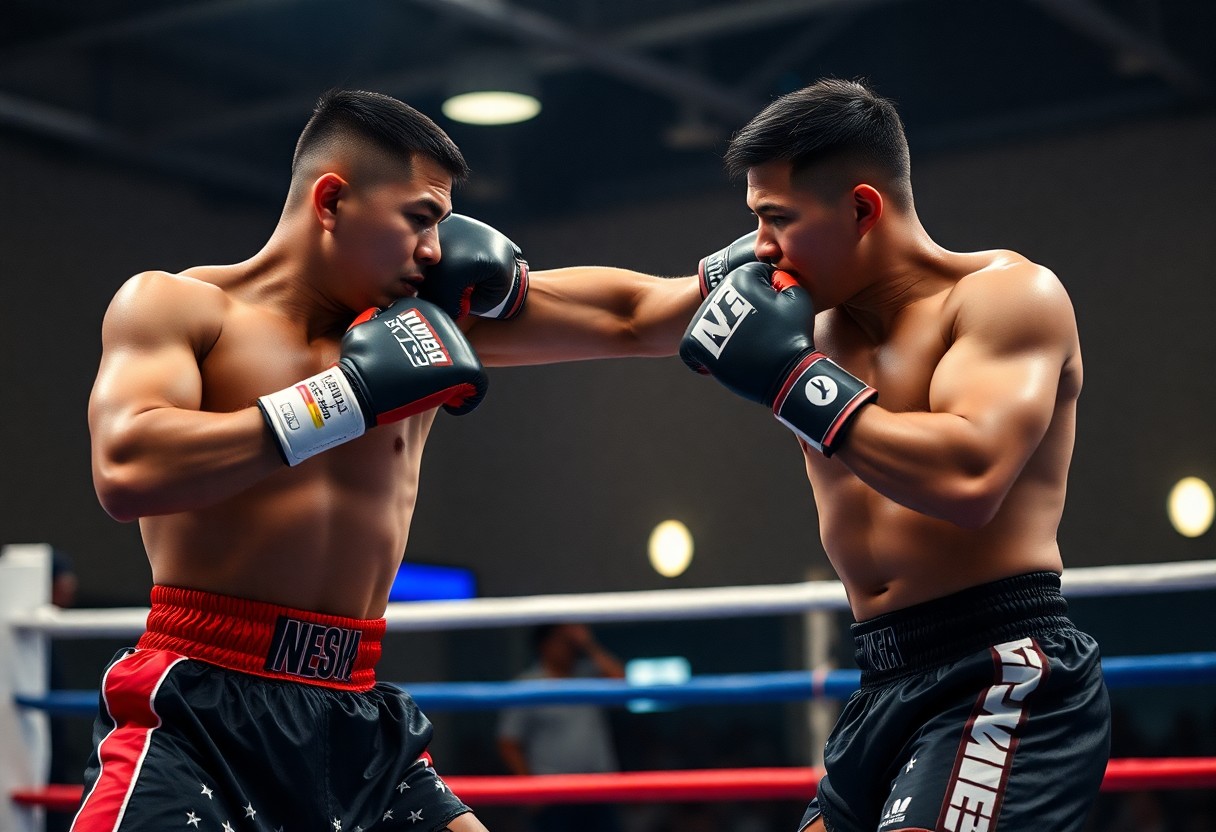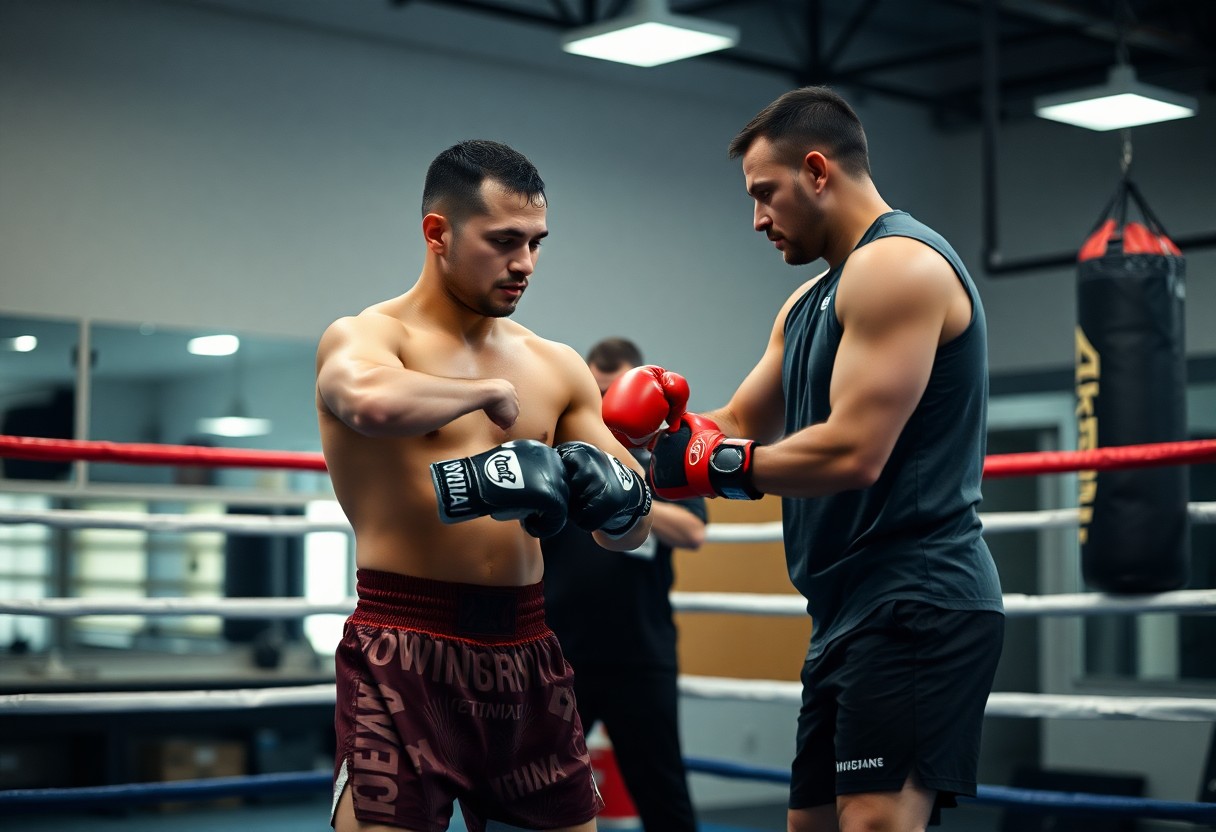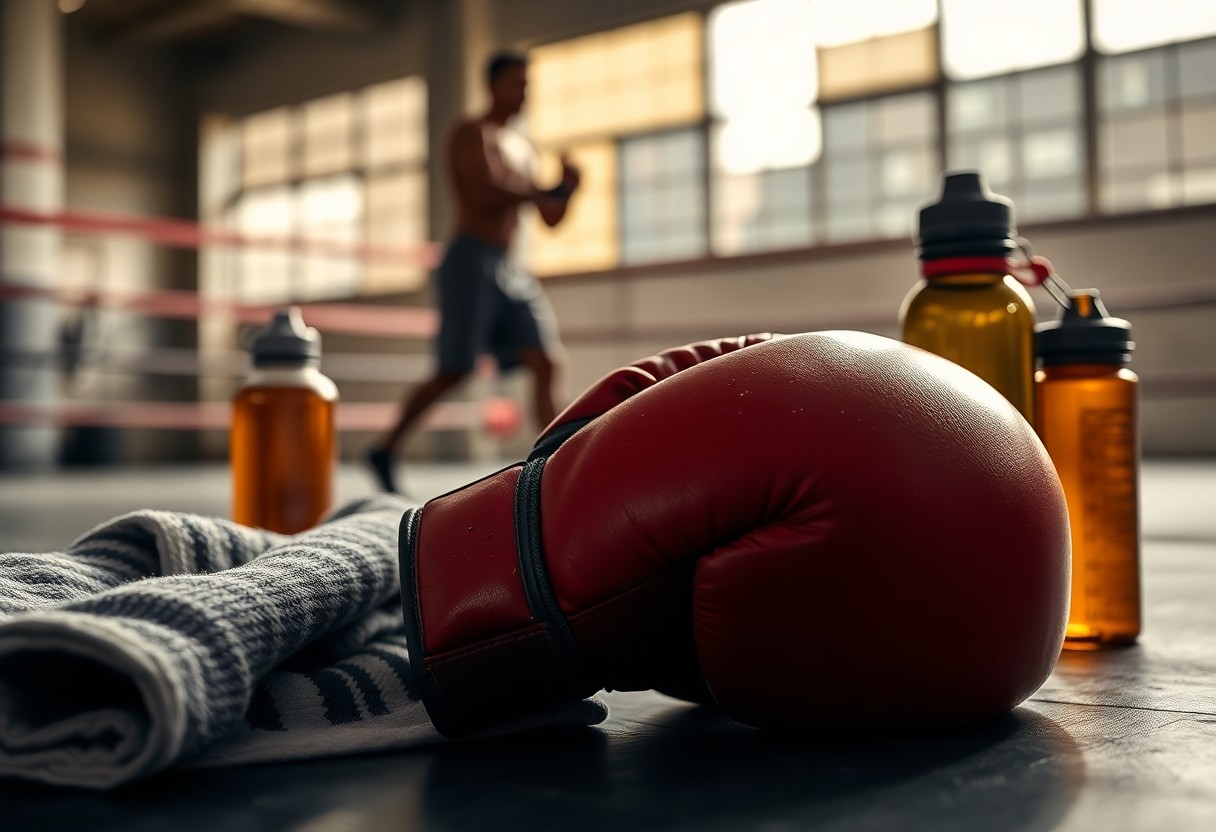
It’s remarkable how Muay Thai, known as the “Art of Eight Limbs,” can transform your mental fortitude alongside your physical capabilities. When you step into the ring or training gym, you’re not just learning devastating strikes using fists, elbows, knees, and shins – you’re building an unshakeable foundation of self-assurance and mental toughness. The rigorous training regimen demands consistent practice, respect for opponents, and unwavering focus, naturally developing discipline that extends far beyond martial arts. As you master complex techniques and push through intense physical challenges, your confidence grows exponentially, teaching you to face life’s obstacles with the same determination you bring to training.
The Psychological Mechanisms of Confidence Building
Your brain undergoes remarkable neuroplastic changes during Muay Thai training, particularly in regions associated with self-efficacy and emotional regulation. Each successful technique execution triggers dopamine release, creating positive reinforcement loops that strengthen your belief in your capabilities. Studies show that combat sports practitioners experience a 23% increase in self-reported confidence levels within just 12 weeks of consistent training. The physical act of throwing strikes and defending against attacks activates your sympathetic nervous system in controlled doses, gradually desensitizing you to stress responses while building resilience pathways in your prefrontal cortex.
The Role of Goal-Setting in Muay Thai
Muay Thai’s structured progression system naturally channels your ambition into measurable achievements. You’ll advance through distinct skill levels, from mastering basic jab-cross combinations to executing complex knee strikes and clinch work. Each training session presents micro-goals – landing clean pad combinations, improving your stance, or increasing round endurance. This constant cycle of setting, pursuing, and achieving targets rewires your brain’s reward system, teaching you that consistent effort produces tangible results. Your confidence compounds as you witness your own capability to transform intention into accomplishment.
Overcoming Fear through Combat Sports
Fear dissipates when you repeatedly expose yourself to controlled combat scenarios. Your nervous system learns to distinguish between actual threats and training situations, reducing anxiety responses in both contexts. Sparring sessions force you to function effectively while experiencing adrenaline surges, teaching your body that you can perform under pressure. This desensitization process extends beyond the gym, making you more composed during job interviews, public speaking, or confrontational situations.
The transformation happens through systematic exposure to progressively challenging scenarios. You’ll start with basic pad work, advance to light technical sparring, then gradually increase intensity as your comfort level grows. Research from the Journal of Sports Psychology indicates that combat sports athletes show 31% lower cortisol levels during stress tests compared to non-practitioners. Your amygdala – the brain’s fear center – literally shrinks through consistent training, while your prefrontal cortex strengthens its ability to override panic responses. This neurological rewiring creates lasting changes in how you perceive and respond to threatening situations, replacing fight-or-flight reactions with calm, calculated responses.
Discipline Through Rigorous Training Routines
Muay Thai training demands unwavering commitment to structured routines that reshape your relationship with discipline. Your typical session includes shadowboxing, pad work, heavy bag training, and conditioning exercises performed in specific sequences at predetermined intensities. Missing even one component disrupts the entire flow, teaching you that shortcuts don’t exist in authentic martial arts training. Professional fighters train 6-8 hours daily across multiple sessions, demonstrating how discipline becomes automatic through repetition. Your body adapts to expect these routines, creating internal accountability that extends beyond the gym into your professional and personal commitments.
The Impact of Consistency on Personal Growth
Training three times weekly for just eight weeks produces measurable improvements in technique retention and physical conditioning, proving that small consistent actions compound into significant transformations. Your muscle memory develops through thousands of repetitions, while your mental resilience strengthens each time you choose to attend class despite fatigue or reluctance. Students who maintain consistent training schedules report improved time management skills and increased follow-through on non-martial arts goals. The discipline required to show up repeatedly, especially when motivation wanes, builds neural pathways that support persistence in all areas of your life.
Embracing Discomfort: How Training Challenges Build Resilience
Muay Thai deliberately places you in uncomfortable situations where your body screams to quit but your mind must override those signals. Holding pads for a partner’s powerful kicks while maintaining proper form despite arm fatigue teaches you to function effectively under pressure. Sparring sessions force split-second decisions while managing fear and adrenaline, developing mental toughness that translates directly to high-pressure situations outside the gym. Your comfort zone expands each time you complete a challenging drill or survive an intense training round.
The physical discomfort experienced during conditioning exercises like 500 kicks on heavy bags or 10-round pad sessions creates measurable increases in pain tolerance and stress management capabilities. Research shows that individuals who regularly engage in controlled physical stress through martial arts training demonstrate improved cortisol regulation and enhanced emotional stability during crisis situations. Your nervous system learns to differentiate between actual danger and temporary discomfort, allowing you to remain calm and focused when facing challenging conversations, tight deadlines, or unexpected setbacks. The mental fortitude developed through embracing training discomfort becomes your foundation for tackling life’s inevitable difficulties with confidence rather than avoidance.
Community and Support: A Catalyst for Growth
Muay Thai gyms create unique social ecosystems where fighters from diverse backgrounds unite under shared goals of improvement and mastery. Your training partners become witnesses to your transformation, celebrating breakthrough moments and supporting you through challenging sessions. Studies show that individuals training in group settings maintain 40% higher adherence rates compared to solo practitioners. The gym becomes your second family, where vulnerability transforms into strength and mutual respect replaces judgment. This supportive environment accelerates both your physical development and mental resilience, creating lasting bonds that extend far beyond the training floor.
The Power of Training Partners and Mentorship
Your training partners push you beyond perceived limitations, holding pads with precision while coaches provide technical corrections that refine your technique. Experienced fighters often mentor newcomers, sharing insights about timing, breathing, and mental preparation that textbooks cannot teach. These relationships create accountability systems where missing training sessions means letting down people who depend on your presence. Mentorship in Muay Thai follows traditional Thai customs, emphasizing respect, patience, and gradual skill development that builds both technical proficiency and character depth.
Building Connections that Foster Self-Belief
Training alongside fighters who once stood where you stand now provides tangible proof that your goals are achievable. Watching teammates overcome fears and master complex combinations demonstrates that progress comes through consistent effort rather than natural talent alone. Your gym community celebrates small victories—your first clean teep, successful clinch escape, or completed round without exhaustion—reinforcing positive self-perception through shared acknowledgment.
These connections extend beyond technical skill development into personal growth territories. Research from combat sports psychology indicates that athletes training in supportive group environments show 35% greater improvements in self-efficacy measures compared to those training individually. Your teammates become living examples of transformation, sharing stories of how Muay Thai helped them overcome personal challenges, career setbacks, or confidence issues. When you witness a shy beginner evolve into a confident fighter over months of training, you internalize the possibility of your own dramatic transformation. The gym becomes a laboratory for testing your limits, with supportive witnesses who encourage you to push boundaries while providing safety nets when you stumble. These authentic relationships create feedback loops where encouragement from respected peers reinforces your growing belief in your capabilities, both inside and outside the ring.
Real-Life Transformations: Inspiring Stories from the Ring
Stories of personal transformation through Muay Thai span across all demographics and backgrounds. Sarah, a 34-year-old accountant from Denver, walked into her first gym session barely able to make eye contact with her trainer. Six months later, she was leading presentations at work and negotiating her first promotion in five years. Marcus, a college student struggling with social anxiety, found that mastering the technical precision of elbow strikes translated into confident public speaking abilities that earned him a leadership role in his fraternity. These transformations aren’t coincidental—they represent the systematic confidence-building that occurs when you consistently push past your comfort zone in a structured, supportive environment.
Profiles of Individuals Who Found Confidence in Muay Thai
Jessica Chen, a software engineer, credits Muay Thai with helping her transition from a quiet team member to a confident project manager leading teams of 15+ developers. After eight months of training, she noticed her voice became stronger in meetings, and she began advocating for her ideas without hesitation. David Rodriguez, a high school teacher, discovered that learning to absorb and counter attacks in the ring taught him to handle classroom disruptions with calm authority. His students now describe him as their most respected instructor, a dramatic shift from his previously timid teaching approach.
The Ripple Effect: How Improved Confidence Affects Other Life Areas
Your newfound confidence from Muay Thai training creates measurable improvements across multiple life domains. Career advancement becomes more attainable as you develop the assertiveness to pursue opportunities and negotiate effectively. Personal relationships strengthen when you communicate boundaries clearly and engage with others from a position of self-assurance rather than insecurity.
Research from sports psychology indicates that individuals who engage in combat sports show 23% higher rates of leadership roles in their professional environments compared to those in traditional fitness programs. Your improved posture, direct eye contact, and composed demeanor—all natural byproducts of Muay Thai training—signal competence to colleagues and superiors. The discipline you develop through consistent training schedules translates into better time management and goal achievement in academic and professional settings. Many practitioners report improved financial decision-making, as the patience and strategic thinking required for effective striking combinations enhances their ability to plan long-term investments and resist impulsive purchases.
Practical Steps to Start Your Muay Thai Journey
Your transformation through Muay Thai begins with taking concrete action rather than endless research. Most successful practitioners start training within their first week of interest, understanding that experience teaches more than theory ever could. The path forward requires selecting the right environment, setting clear objectives, and committing to consistent practice that will reshape both your physical capabilities and mental fortitude.
Finding the Right Gym and Community
Visit potential gyms during peak training hours to observe the atmosphere and instructor-student interactions. Quality Muay Thai schools maintain a 1:8 instructor-to-student ratio during beginner classes, ensuring proper technique correction and safety oversight. Look for facilities where experienced fighters train alongside newcomers, creating an environment of mutual respect and learning. The right community will challenge your limits while supporting your growth, with members who celebrate small victories and provide encouragement during difficult training sessions.
Establishing Your Personal Goals in Training
Define specific, measurable objectives that align with your reasons for starting Muay Thai. Beginners who set concrete 90-day goals show 40% higher retention rates compared to those with vague aspirations. Whether you aim to master basic combinations, improve cardiovascular endurance, or develop mental resilience, clear targets provide direction for your training sessions and measurable progress markers.
Your goal-setting process should encompass both physical and psychological development milestones. Consider establishing technical benchmarks like executing 100 consecutive jabs with proper form, or conditioning goals such as completing three rounds of pad work without excessive fatigue. Mental objectives might include maintaining composure during sparring sessions or developing the discipline to train consistently for six months. Document these goals and review them weekly with your instructor, adjusting timelines and expectations based on your progress. This systematic approach transforms abstract desires into concrete achievements, creating momentum that sustains long-term commitment to your Muay Thai practice.
To wrap up
Conclusively, Muay Thai serves as a powerful catalyst for transforming your mental fortitude and self-assurance. Through consistent training, you develop unwavering discipline that extends beyond the gym into your daily life, while mastering complex techniques builds genuine confidence in your abilities. The art’s demanding nature teaches you to push through discomfort and overcome mental barriers, strengthening your resolve. As you progress in your Muay Thai journey, you’ll discover that the physical training becomes a foundation for mental resilience, equipping you with the tools to face challenges with greater composure and determination.

